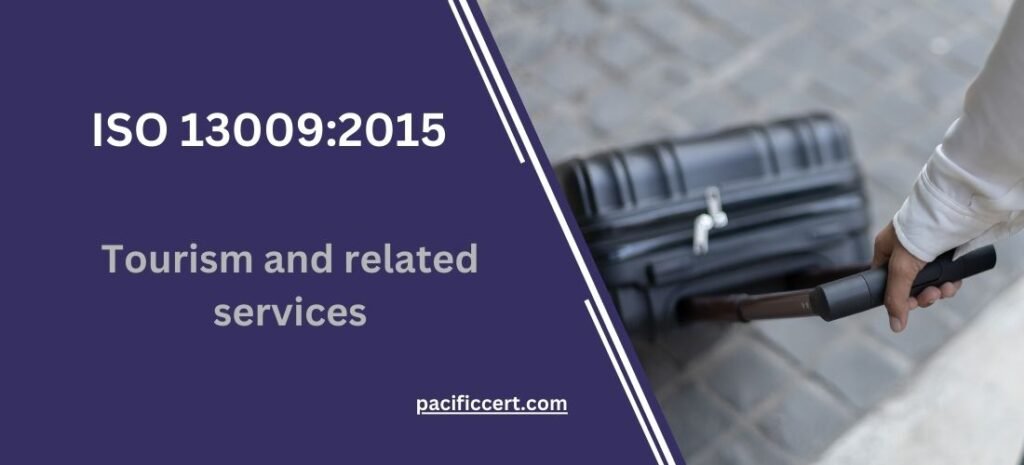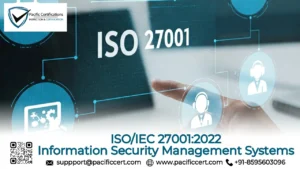
ISO 13009:2015 – Tourism and Related Services: Requirements and Recommendations for Beach Operation
ISO 13009:2015 provides internationally recognized guidelines and best practices for the sustainable management and operation of beaches. As tourism continues to play a major role in global economic development, the need for structured, safe, and environmentally conscious beach operations has become essential. This standard addresses the operational, environmental, and safety requirements for public and private beach managers, ensuring that both visitors and local ecosystems are protected.
It promotes a balance between improving the tourism experience and maintaining long-term ecological and community well-being. ISO 13009 applies to all types of beaches, from urban and resort zones to more remote and natural coastlines, making it a versatile framework for responsible coastal tourism.

To begin your ISO 13009 implementation or certification process, contact support@pacificcert.com.
Scope and Applicability
ISO 13009:2015 is applicable to everyone responsible for managing beach areas. It applies to both natural and artificial beaches that are used for recreational purposes.
The standard covers:
- Beach infrastructure and amenities
- Safety services and information provision
- Environmental education and conservation measures
- Sanitation and hygiene standards
- Visitor experience and accessibility
Whether managing a single beach or a coastal network, ISO 13009 helps stakeholders deliver consistent service quality, ensure legal and environmental compliance, and promote sustainable tourism practices.
Certification Process
- Conduct a baseline assessment of current beach operations in comparison to ISO 13009 requirements
- Identify key compliance areas such as signage, waste management, accessibility, and safety provisions
- Develop an action plan to upgrade infrastructure, services, and operational procedures
- Define roles and responsibilities for beach personnel including lifeguards, maintenance staff, and security teams
- Implement training programs on environmental awareness, emergency response, and customer service
- Establish performance metrics and feedback mechanisms for continuous improvement
- Engage a recognized certification body like Pacific Certifications to conduct the audit
For detailed information, reach out to support@pacificcert.com.
Documentation Required
To support ISO 13009 certification, beach operators should maintain:
- Environmental impact assessments and coastal zone management reports
- Emergency preparedness and evacuation protocols
- Signage plans and visitor information systems
- Waste management and sanitation logs
- Maintenance schedules for beach equipment and infrastructure
- Accessibility guidelines and facilities documentation
- Water quality and safety monitoring reports
- Stakeholder engagement and community outreach records
Eligibility Criteria
Any public or private entity responsible for the operation of beaches can pursue ISO 13009 certification. Eligible parties include:
- Municipal beach authorities
- Resort operators with private beachfronts
- Tourism boards and coastal management organizations
- NGOs involved in coastal conservation
A commitment to safety, environmental stewardship, and visitor satisfaction is essential.
Certification Costs
Certification costs depend on the size, location, and complexity of the beach operations. Key cost factors include the number of beaches being assessed, scope of facilities, and existing operational standards. For a customized quote, contact support@pacificcert.com.
Certification Timeline
- Initial Gap Analysis and Site Review: 2–3 weeks
- Action Plan Development and Infrastructure Updates: 3–5 weeks
- Training, Monitoring, and Recordkeeping: 2–4 weeks
- Final Certification Audit: 1–2 weeks
Typical certification timeframe is 8–12 weeks, depending on readiness and beach infrastructure conditions.
Requirements of ISO 13009:2015
ISO 13009 sets out requirements in key areas:

- Information and Signage: Beaches must have multilingual signage regarding safety, services, and environmental protection.
- Beach Facilities: Availability of restrooms, showers, seating, walkways, and shaded areas should meet accessibility and safety standards.
- Safety Services: Lifeguard presence, first-aid stations, communication systems, and incident reporting mechanisms are critical.
- Environmental Management: Efforts to minimize coastal erosion, pollution, and habitat disruption should be documented and enforced.
- Sanitation and Hygiene: Routine cleaning schedules, proper waste segregation, and water quality monitoring must be in place.
- Accessibility: Beaches must accommodate individuals with disabilities, offering barrier-free access where possible.
- Visitor Experience: Amenities, feedback systems, and education programs should enhance user satisfaction and awareness.
Benefits of ISO 13009 Certification
- Increased tourism appeal through higher operational and environmental standards
- Better safety outcomes for beachgoers and staff
- Compliance with national and international regulations
- Enhanced environmental conservation and local community engagement
- Improved public image and international recognition
- Structured feedback and monitoring for long-term quality management

With the global rise in eco-tourism and sustainable travel, ISO 13009 plays a pivotal role in setting expectations for beach safety and quality. Coastal areas are increasingly under pressure from climate change, over-tourism, and environmental degradation. This standard offers an essential roadmap for sustainable coastal tourism management.
Adoption of ISO 13009 is growing among national tourism agencies, luxury resorts, and municipalities seeking Blue Flag or similar eco-label accreditations. It supports SDG goals related to sustainable cities, responsible consumption, and life below water.
How Pacific Certifications Can Help
Pacific Certifications provides end-to-end support for ISO 13009 implementation and certification. We assist public and private sector clients in designing operational protocols that enhance safety, sustainability, and visitor satisfaction.
Our services include:
- Initial compliance audits and gap assessments
- Environmental and risk management planning
- Training for beach staff and emergency personnel
- Preparation of documentation and site-specific SOPs
- Final certification and periodic surveillance audits
For expert support, contact support@pacificcert.com.
Frequently Asked Questions (FAQs)
Is ISO 13009 certification mandatory?
No, but it is widely adopted by tourism-focused coastal regions to elevate standards and gain international recognition.
Can it be applied to private beaches?
Yes, resorts and hospitality providers with private beachfronts can fully implement ISO 13009.
How does ISO 13009 relate to Blue Flag certification?
While Blue Flag is a specific ecolabel, ISO 13009 provides a broader, process-based management framework that supports such designations.
What happens during the audit?
Auditors review infrastructure, safety protocols, environmental plans, visitor services, and documentation for compliance.
How long is the certification valid?
Typically valid for 3 years, with annual surveillance audits.
Ready to get ISO 13009:2015 certified?
Contact Pacific Certifications to begin your certification journey today!
Suggested Certifications –






